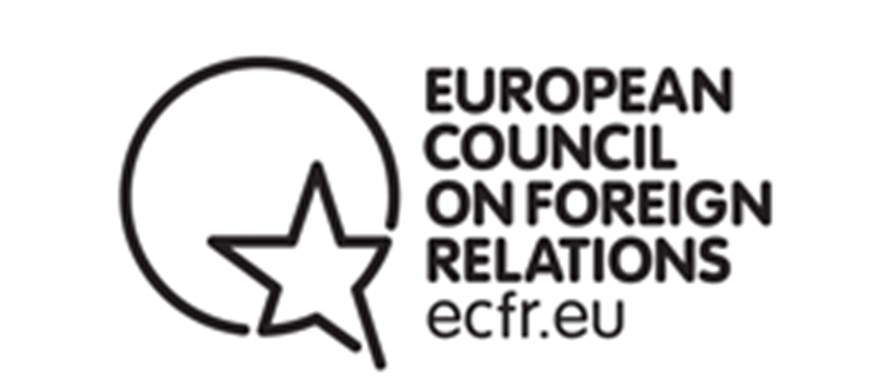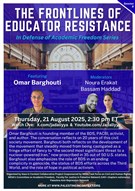[The following policy brief was written by High Lovatt and published by the European Council on Foreign Relations on 31 October 2016]
EU Differentiation and the Push for Peace in Israel-Palestine
Introduction
Next year will mark the 50 year anniversary of Israel’s de facto annexation and prolonged occupation of Palestinian territory. The approaching milestone will bring with it a renewed focus on both the failings and future direction of international peacemaking efforts. The lack of any viable path towards a two-state solution in recent years has shown that European policy is increasingly out-of-sync with realities on the ground at a time during which developments in the Occupied Palestinian Territories (OPTs) and in Israeli politics are moving in the wrong direction.
With the potential for a two-state solution growing increasingly unlikely, the EU’s desire to maintain a “business as usual” approach, predicated on high levels of financial and political investment, and an unwavering commitment to a Middle East Peace Process (MEPP) that has long since broken down, only perpetuates these negative trends.
Even though European leaders accept that the status quo in the OPTs is unsustainable, they fail to offer any course correction. Instead, they continue to repeat the failed choreography that has characterised the last 20 years of peace talks. Among many European policymakers the belief still persists that the Middle East Peace Process, in its current Oslo configuration, offers the path to resolving the conflict. Failing that, they believe the MEPP still represents an effective tool for managing the conflict provided that both sides can be coaxed back into talks. Current dynamics on both sides are increasingly challenging these two beliefs.
While the European Union and its member states frequently reaffirm their commitment to a two-state vision, they shy away from deploying the tools necessary to help make this a reality, or at least maintain it as a viable option. In continuing to promote a broken model, the EU and its member states are punching below their collective weight. Instead of taking the initiative, they continue to act solely as a placeholder in between successive rounds of United States-led diplomacy. Instead of restricting its energies to devising new formats and incentives to push Israelis and Palestinians back into the negotiating room, the EU could be tackling issues head on.
Getting the Palestinian house in order is a priority that the EU needs to push forward with its Palestinian interlocutors given its status as the largest donor of financial assistance. This includes affirming European support for reconciliation, national elections and PLO reform – challenges that will be important to overcome so as to smooth the way towards a future peace agreement. Tackling violence and accusations of incitement on both sides is another important element. But cause and effect should not be confused.
It is Israel’s policy of settlement expansion, the fragmentation of Palestinian territory and the domestic dynamics sustaining Israel’s settlement enterprise that ultimately represent the greatest and most immediate threat to the viability of a two-state solution. As ECFR’s July 2015 report on “EU differentiation and Israeli settlements” argued, EU law provides an effective legal framework for chipping away at the incentive structure that underpins Israeli public support for the occupation.[1]
Fewer Incentives
The EU’s traditional approach to the Israeli-Palestinian peace process has been based on maintaining a framework of incentives. The traditional thinking has been that Israel can be incentivised to moderate its behaviour and move along the path of peace with its Palestinian neighbours. The lack of any real political horizon for ending the conflict 20 years after the launch of the Oslo peace process indicates that this incentive approach has clearly failed.
Efforts to incentivise Israel have meant that, with the exception of EU candidate countries and European neighbours, it now has a higher level of integration within the EU’s fabric than most other countries in the world. This has given it privileged access to a range of free trade opportunities, including in the fields of tourism, technology, security, and education.
In June 2008, the EU offered an unconditional upgrade in relations with Israel within the context of its European Neighbourhood Policy even as it expressed its deep concern over accelerated settlement expansion.[3] Four years later, in July 2012, the EU-Israel Association Council identified a list of 60 areas where bilateral relations could be unconditionally strengthened. Then, in December 2013, the EU proposed a Special Privileged Partnership (SPP) as part of a future peace agreement with the Palestinians.[4]More recently, in June 2016, the EU suggested that an additional interim package of incentives be developed to entice both sides towards peace.[5]
All of this, however, has only fed Israel’s appetite for more carrots without taking any positive steps towards the Palestinians. In fact, Israel’s response to new upgrades has often been one of silence or vindication that continued settlement policies have not undermined its relations with Europe. Neither have all the carrots in the world saved Europe from accusations of anti-Semitism, nor slowed the pace of Israeli demolitions of EU-funded humanitarian projects in Area C and the further annexation of Palestinian land.[6] One Israeli politician, now a senior member of the ruling coalition, even described the SPP as an insult and tantamount to bribing Jews to give up their homeland.[7]
Far from furthering the prospects of peace, the EU’s existing policy further empowers Israeli occupation. Unconditional incentives only breed a sense of Israeli exceptionalism and impunity whilst undermining European credibility. The EU’s policy has encouraged Israel’s belief that the conflict can be managed and the settlement enterprise expanded without incurring any tangible cost to its international relations. A March 2014 poll of Israeli-Jewish opinion found that only 9 percent of those surveyed thought that present measures by European governments, businesses, and consumers would be costly for Israel if the existing situation did not change, including on the settlement issue.[8]
This perception will not change unless Israel’s aspirations, expectations, and understanding of the current reality are adjusted. In the same survey, 57 percent believed that a combination of incentives and disincentives would be the most influential method of getting Israeli politicians to accept a peace agreement with the Palestinians.[9] The lesson for Europe is clear: Introducing fewer incentives and more disincentives into its dealings with Israel is likely to prove the more effective formula for achieving positive change in support of a two-state solution.
[Click here to access the full policy brief]

















